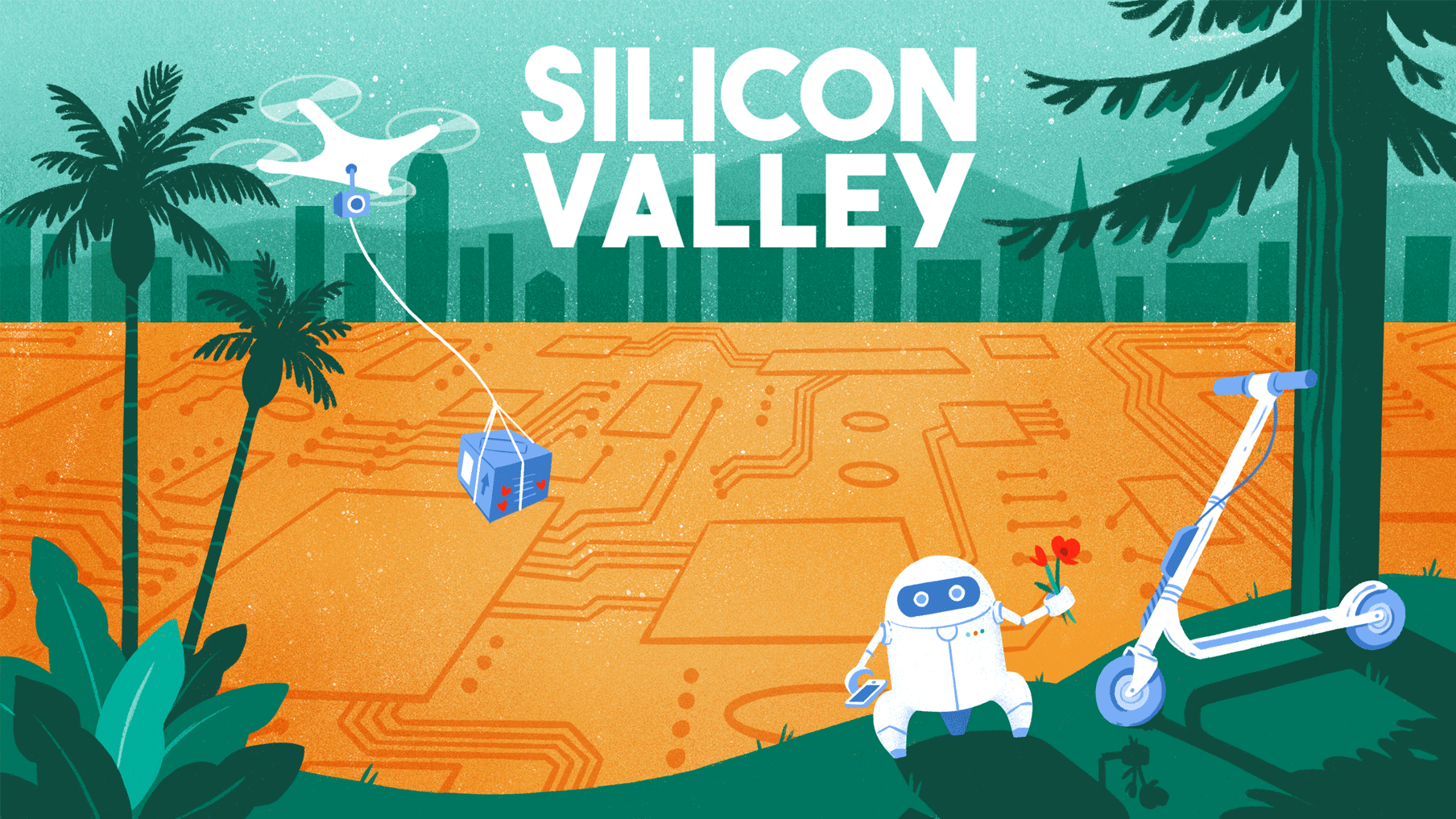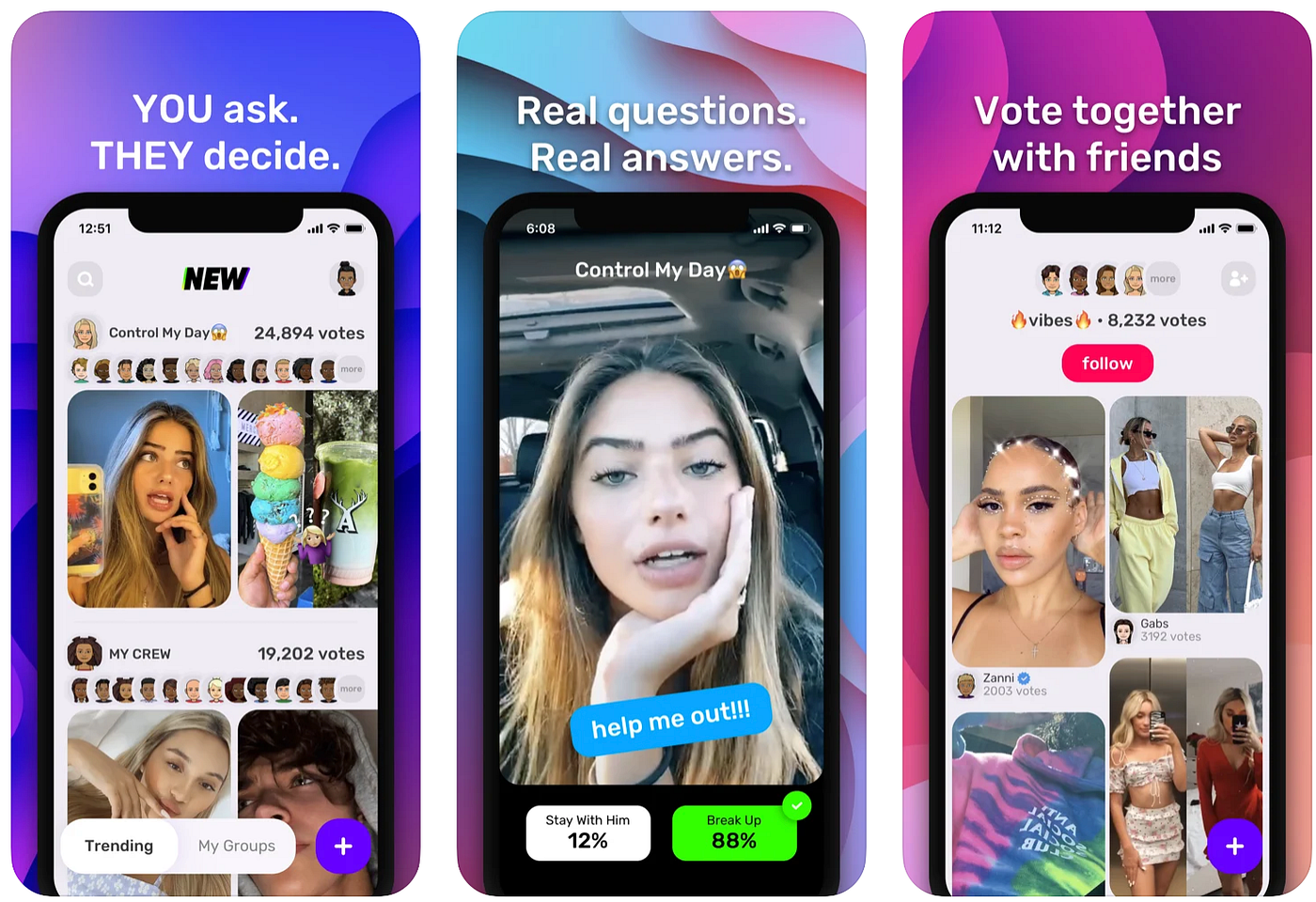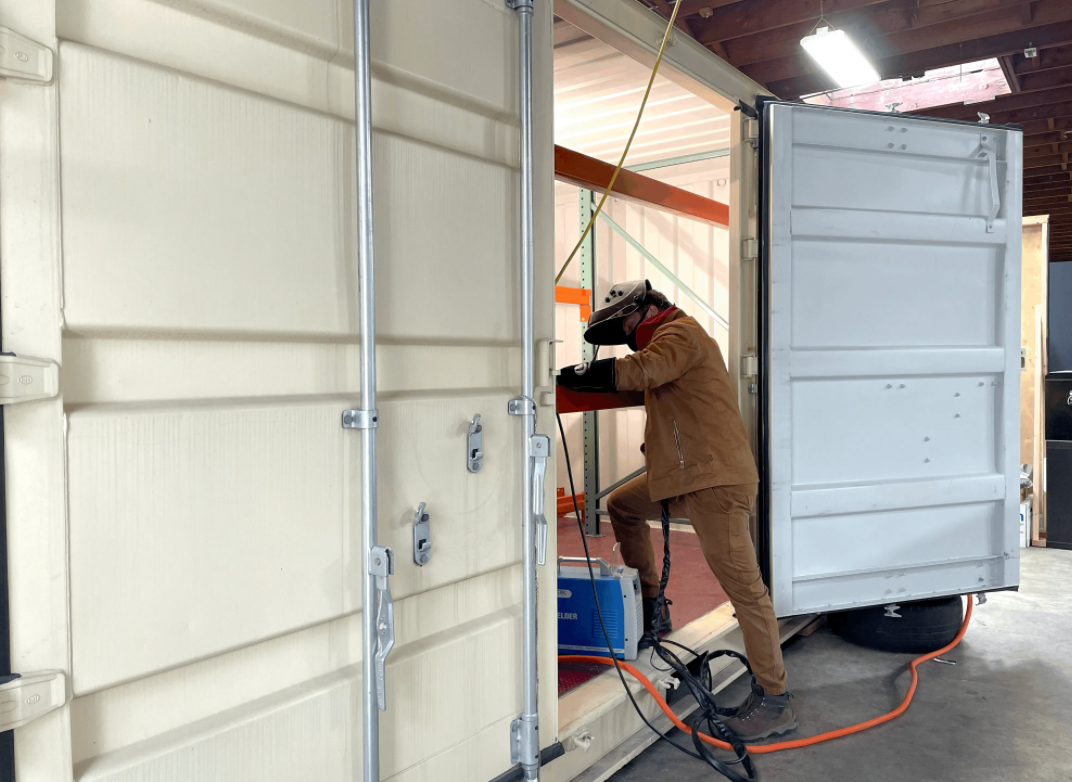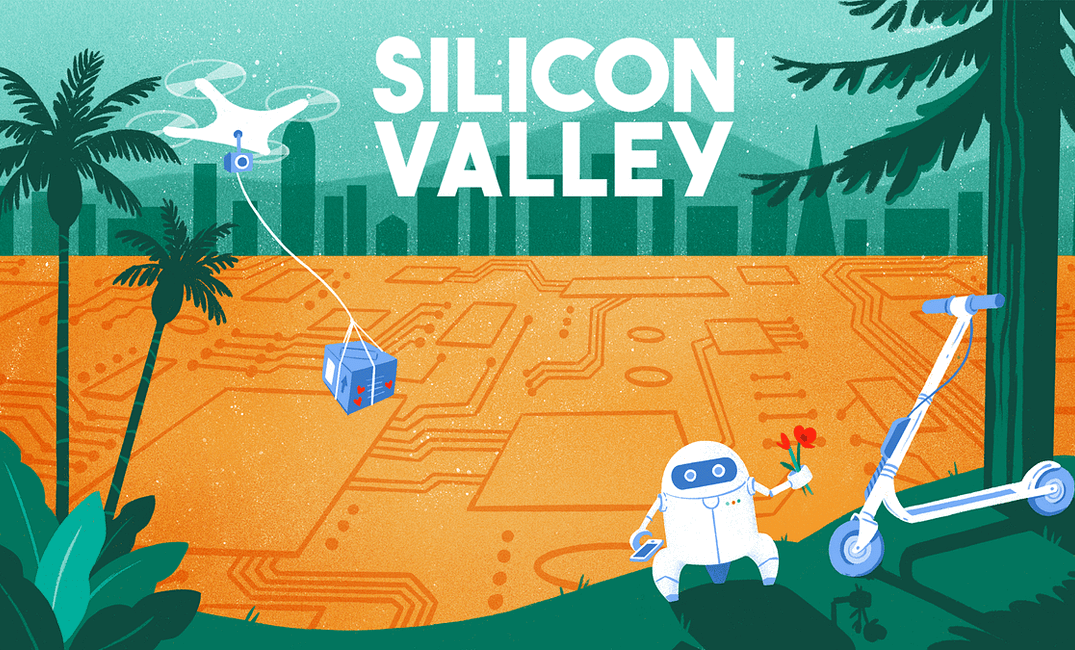The Weirdest Shit Out of Silicon Valley

There’s a lot to unpack from March in the tech sphere. Twitter founder Jack Dorsey testified before Congress while troll tweeting — and got called out on it, meaning senators were checking Twitter during the hearing (yeesh). Then there was the uBiome nonsense, a poop-testing startup that’s literally shit. (Its co-founders were charged with fraud.) And, of course, there was the general glitchiness of vaccine passport apps. (Color me unsurprised.)
Considering this hot mess of a month, I think a drink or two is in order, so this month’s “Two Truths and a Lie: The Silicon Valley Edition” is all about le booze.
Which of the following beverage startups is fake?
- A beer vending machine startup that verifies a user’s age by finger-vein biometrics.
- An A.I.-infused robot bartender that serves consumers drinks and chatty conversation.
- An A.I. bartender that uses emotion-recognizing facial recognition to design custom cocktails for your mood.
Find the answer at the bottom of the piece.
Know of some ridic stuff happening in tech? Email, DM, or tweet me to include it in next month’s edition.
Watch Rocket Lab CEO Peter Beck EAT HIS HAT. Then watch it again.

As culinary choices go, your average baseball cap is probably pretty far down the list. Some things are probably worse — a car tire, for example, or perhaps a pair of stilettos. But for Peter Beck, the 44-year-old CEO of Rocket Lab, an aerospace and satellite startup, the humble cap was more than a meal—it was an admission. Beck posted a video in which he sits behind a restaurant-style table, all white-linen cloths and seven pieces of cutlery. Looking straight at the camera, he cuts off a section of the baseball cap and places it in a blender. Beck then pours the fibrous fluff into a cocktail glass and chows down on a small piece.
“This hat is not tasty,” he says.
The reason for this mealy mouthful was a long-standing statement Beck had issued: He said he’d “eat his hat” if Rocket Lab ever made reusable boosters—the part that supercharges the thrust that propels a rocket through the gravitational field—for its rockets. As the company moved into the reusable space, Beck repeated repeat this idiom in 2019:
“Unfortunately, I find myself in the position of eating my hat.”
He repeated this again in 2020: “I think a blended hat should be just fine, but apparently it’s not particularly good for you. I think if it’s a woolen hat — how bad could that be? It’s just like licking a rug, really. It can’t be that bad for you.”
Then came 2021 and the announcement of Rocket Lab’s fully reusable Neutron rocket, which can be used again and again, rather than a one-off, and is capable of human spaceflight and sending 1,500 kilograms to Mars. Beck decided to make good on his word—and maybe get some extra press for the stunt, which worked, so *shrug emoji*.
Tap out of Zoom with ‘unavoidable’ roadworks and crying babies

We’ve come full circle on Zoom. What was once hailed as the perfect way to stay in touch in a remote wilderness has evolved into a condition: Zoom fatigue. Humans weren’t meant to stare at each other for so long without being able to pick up on all those subtle nonverbal cues. “Excessive amounts of close-up eye contact is highly intense,” explains professor Jeremy Bailenson, director of the Stanford Virtual Human Interaction Lab.
Enter Zoom Escaper, a browser widget that gives users some much-needed time-out while making it look like stepping away is beyond their control, reports James Vincent at The Verge. It does this by adding a variety of sound effects to your call that give you perfect reasons to opt out.
Your audio is routed through Zoom’s audio input—select “VB cable” in Zoom’s microphone settings, according to the video instructions—to layer your voice over Zoom Escaper’s vocalizations. Sounds include construction, urination, wind, dogs, upset baby, man weeping, echo, and bad connection, and you can adjust the volume on each. The widget does not play the sound on your end, just on the recipients’ end, so you’re not escaping one miserable situation for another.
Sign up for The Bold Italic newsletter to get the best of the Bay Area in your inbox every week.
Of course, some will work better than others — as entertaining as urination may be, it wouldn’t reflect well on you to an employer, and it’s hard to have crying babies distract you if they know you don’t have a baby. The construction, echo, or bad connection effects seem like the most plausible reasons to drop out of the call — just use them sparingly, or they’ll wise up, and that will be a really awk call.
Get the side-eye from your great-grandparents
Everyone (a generalization I’m okay with) is feeling kinda rubbish at the moment. The VaxPack is growing, but slowly, so it’s no wonder people are filling their time with random internet shiz to amuse themselves. Case in point: Deep Nostalgia, an A.I.-based photo manipulator that animates old photos, reports Alex Hern at The Guardian.
Deep Nostalgia comes courtesy of genealogy website My Heritage. You upload an image, and the site takes around 10 to 20 seconds to animate it. The animation’s accuracy and smoothness is uncanny: Heads nod, eyes roll, mouths quirk up at the corners. It’s almost seamless.
“Our videos don’t include speech in order to prevent abuse, such as the creation of ‘deep fake’ videos of living people,” explains the My Heritage website. The abuse question is valid: While it was designed for “ancestor photos,” the app works on all photos and images, and the internet being what it is, people have created animated Draculas, Corpse Bride paintings, Adolf Hitler, and more. So, yeah, there could be some issues here, but when aren’t there, as a general principle?
NewNew lets you pay to influence the influencers

Ever wished you had a little more say in what your favorite influencer ate for lunch or what they’re wearing? Oh, no, you’re not a sociopath? Well, apparently some people are. Thanks to NewNew, a stupid name for this Los Angeles–based app startup, influencers can poll fans about daily decisions—who they should hang with, what they should eat, etc.—and their fans pay to vote. Basically, you’re influencing the influencers, but paying to do so. If this isn’t weird enough for you yet, get this: NewNew describes itself as a “human stock market.”
“You purchase moments in other people’s lives… and you can control a certain level of a person’s life,” founder Courtney Smith tells the New York Times.
This isn’t the first time influencers have sold themselves for money — apps like Cameo and PearPop provide people with personalized birthday video messages or comments on their Instagram account, but this is maybe the first time creators have turned over their “creative control” to the general public. Some of the polls available verge on the ultrapersonal, including breakups — should I stay with him or not?
Silicon Valley’s hot new job is head of remote work

Remote work will continue to be a a real thing, even as the pandemic winds down. Which means “head of remote work” is now a coveted position in Silicon Valley and one with a long lifespan. It’s about “creating a virtual water cooler,” Carolyn Said writes in the San Francisco Chronicle.
The role might include designing remote-working perks, collaborations, and ways to keep staff motivated. And demand for people to fill these positions is growing. Okta, a San Francisco–based startup, recently created a role for “head of dynamic work,” and Facebook hired a “director of remote work.” In mid-2020, Twitter offered employees’ children access to Camp Twitter, a virtual childcare program that covered music, baking, and forensic science. Better get used to that home standing desk.
Mezli’s shipping container robo-chef

First we had robot chefs, then came ghost kitchens, and now we have a robot-restaurant-in-a-box, thanks to Mezli, a San Francisco–based food startup dreamed up by three “can’t cook, won’t cook” Stanford graduate students—a robotics guy, an aero/astro dude, and an A.I. researcher—reports The Spoon. Mezli’s MO is grain bowls with a Mediterranean flavor — cooked up in a San Mateo ghost kitchen. They just showcased their product at YCombinator’s March demo day.
“As I was winding down a project building an autonomous weeding robot [italics are mine], it crossed my mind that one of my own biggest daily frustrations was something that was worth building a company to solve,” explains co-CEO Alex Gruebele. Basically, he was time and cash poor and “couldn’t afford to spend $10 or more at Chipotle, Sweetgreen.” An affordable robo-chef seemed like the solution.
Mezli’s robo-cook, iteration V1, has a battery life of 48 hours or 300 meals. whichever comes first, before needing a friendly human to check its output/power settings. The robot holds 15 ingredients and is able to mix and plate food inside Mezli’s containers. As a quirky perk, it allows you to write your name in sauce atop your bowl—great for those five-year-olds at heart, amirite? Later iterations of Mezli’s robo-kitchen are expected to autonomously cook, plate, and package the food, which will cost an estimated $4.99 per meal. Gotta love their pricing. Gotta not love the jobs these robots will eliminate.
Answer to ‘Two Truths and a Lie: The Silicon Valley Edition’
The emotional-cocktail robo-tender is the fake one. Cecilia.ai makes the conversational robo-tender. The SmartPan Pro beer vending machine hails from PanPacific International in Arizona.







